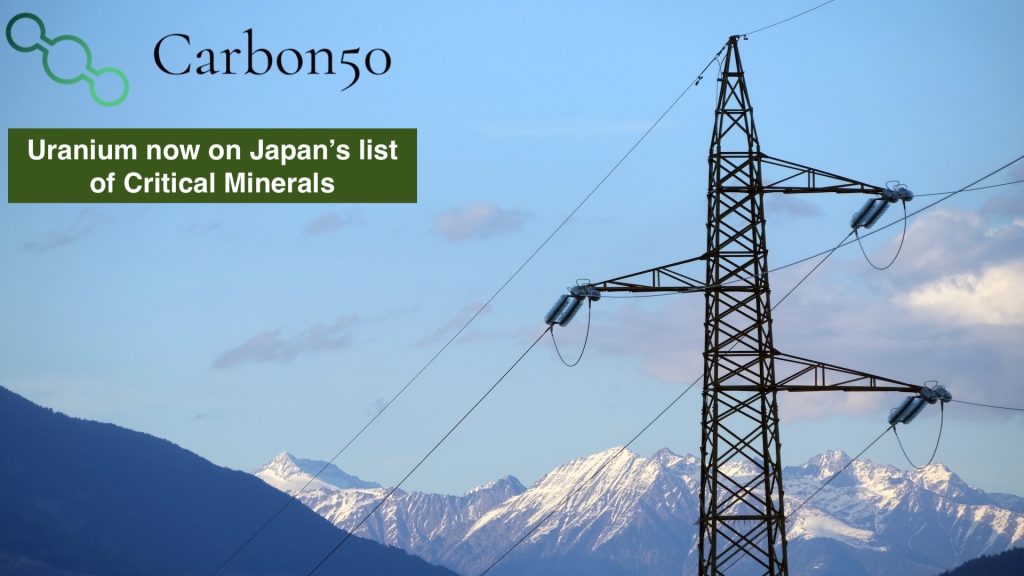In February 2024 Japan added Uranium to its list of Critical Minerals. The question is not so much why Japan did so, but rather why all the other nuclear countries did not follow in its path. Canada already had Uranium on its list, and in July the French Senate published a report on Electricity production and consumption by 2050 in which it outlines the upcoming constraints on the global availability of Uranium. However this topic only appears on page 668 of 821 of the first tome of the report.
Fossil fuels account for 83% of Japan’s primary energy. Japan pledged to reach carbon neutrality by 2050. However, its constraints on land availability are already bottlenecking its development of renewable energy, and mid-and long-term constraints on the global availability of critical materials will make it very unlikely for the world to decarbonize using solely renewable energy without drastically reducing global physical production. The International Energy Agency already alerted about a “[…] mismatch between the world’s strengthened climate ambitions and the availability of critical minerals[…]”; while the Energy Transition Commission wrote that “Even with materials efficiency and recycling, there will be a gap between 2030 demand and currently planned supply, notably for copper, lithium, nickel, cobalt, and graphite”
Nuclear energy has therefore a major role to play in decarbonizing Japan’s and the world’s energy mix. Today it accounts for only 2.6% of Japan’s primary energy, and Japan, together with most of the other countries using nuclear power, pledge to triple the installed capacity by 2050.
However global recoverable reserves of uranium (at 260$/Kg) can cover current demand for 130 years. 40 years in the installed capacity is tripled. With the standard lifetime of a nuclear reactor in the 60 to 80 years, the world is clearly running into an uranium supply issue in the coming decades.
The commercial deployment of fast neutron reactors, that can use U238 and therefore increase global fuel reserves by ~100, has never been more pressing.

